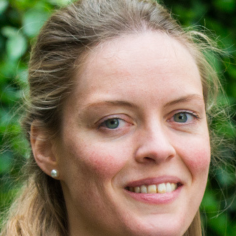 \
&
Contact us
\
&
Contact us
 \
&
Contact us
\
&
Contact us
The Future and Emerging Technologies (FET) programme aims at developing radically new technologies by exploring novel and high-risk ideas building on scientific foundations. It promotes research beyond what is known, accepted or widely adopted and fosters novel and visionary thinking to open promising paths towards powerful new technologies, some of which could develop into leading technological and intellectual paradigms for the decades ahead.
In particular, it funds interdisciplinary collaborations that seek genuine cross-fertilisation and deep synergies between the broadest range of advanced sciences (physical sciences, information sciences, life sciences, environmental sciences, social sciences, humanities,…) and cutting-edge engineering disciplines (chemical, physical, biological, computational, geospatial, …) in order to turn new knowledge and high-risk ideas into a viable basis for radically new technologies. Thus, research in FET is complementary to incremental research as well as to the European Research Council, which itself is aiming at excellent individual researchers while FET supports collaborative research projects to open up new and promising fields of research, technology and innovation.
The combination of a game-changing long-term vision and technological concreteness positions FET research between blue-sky science on the one hand, and research driven by societal challenges or by industrial competitiveness on the other.
The FET work programme 2018-2020 consists of three major lines of activity in which calls for proposals will be launched:
The FET programme lines that are also part of the EIC pilot are also known as the EIC Pathfinder.
The EIC pilot was launched on 27th October 2017. The Enhanced European Innovation Council (EIC) pilot aims to support top-class innovators, start-ups, small companies and researchers with bright ideas that are radically different from existing products, services or business models, are highly risky and have the potential to scale up internationally.
All information related to the EIC pilot can be found on the dedicated EIC pilot programme page on this website.
Other FET related topics can be found in the Horizon 2020 cross-cutting activities 2018-2020 work programme. For battery research 246 million euros is reserved in 2019 and 2020 (work programme and dedicated programme page also available under related links). Calls on the topic High Performance Computing can be found in the EuroHPC Joint Undertaking work plan (related links).

margot.beereboom@fwo.be
+32 2 550 15 76
Infosheets contain edited content on aspects related to this programme. They are reviewed at least yearly.
Related links are easy pointers towards external information. We curate the list, but are not liable for the destinations.
Documents contain additional information related to this programme, and are similar to related links.

ChemStream is an innovative chemical R&D company, specialized in translating material problems in sustainable formulations with focus on nano-dispersions, functional coatings and inkjet inks. Within LORCENIS they will develop super absorbing polymers (SAPs) to be mixed within the concrete matrices for improving the active internal curing, self-healing and self-sealing properties of the concrete. Grindig SAPs.
ChemStream bvba and Ghent University are involved in Horizon 2020-project for developing long lasting reinforced concrete for energy infrastructures.